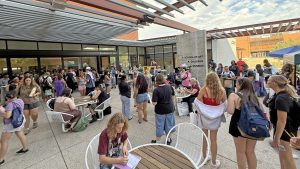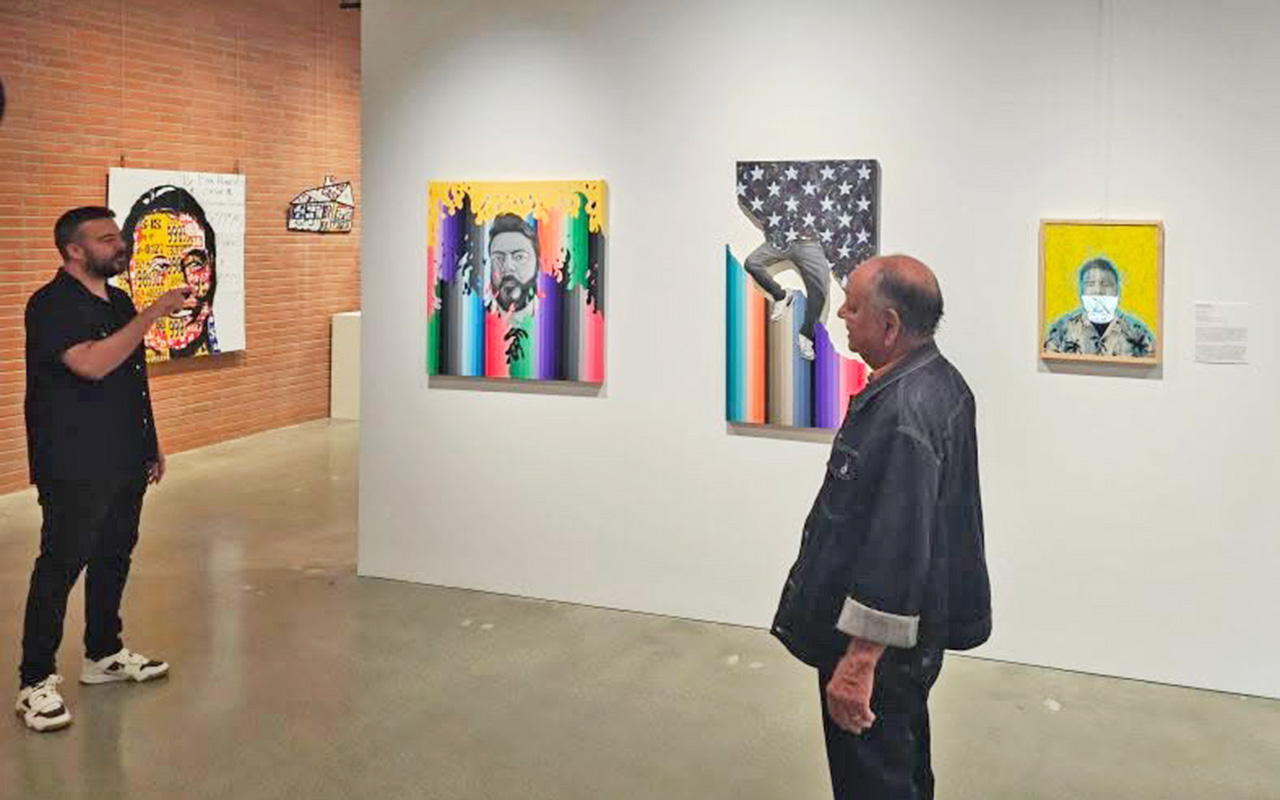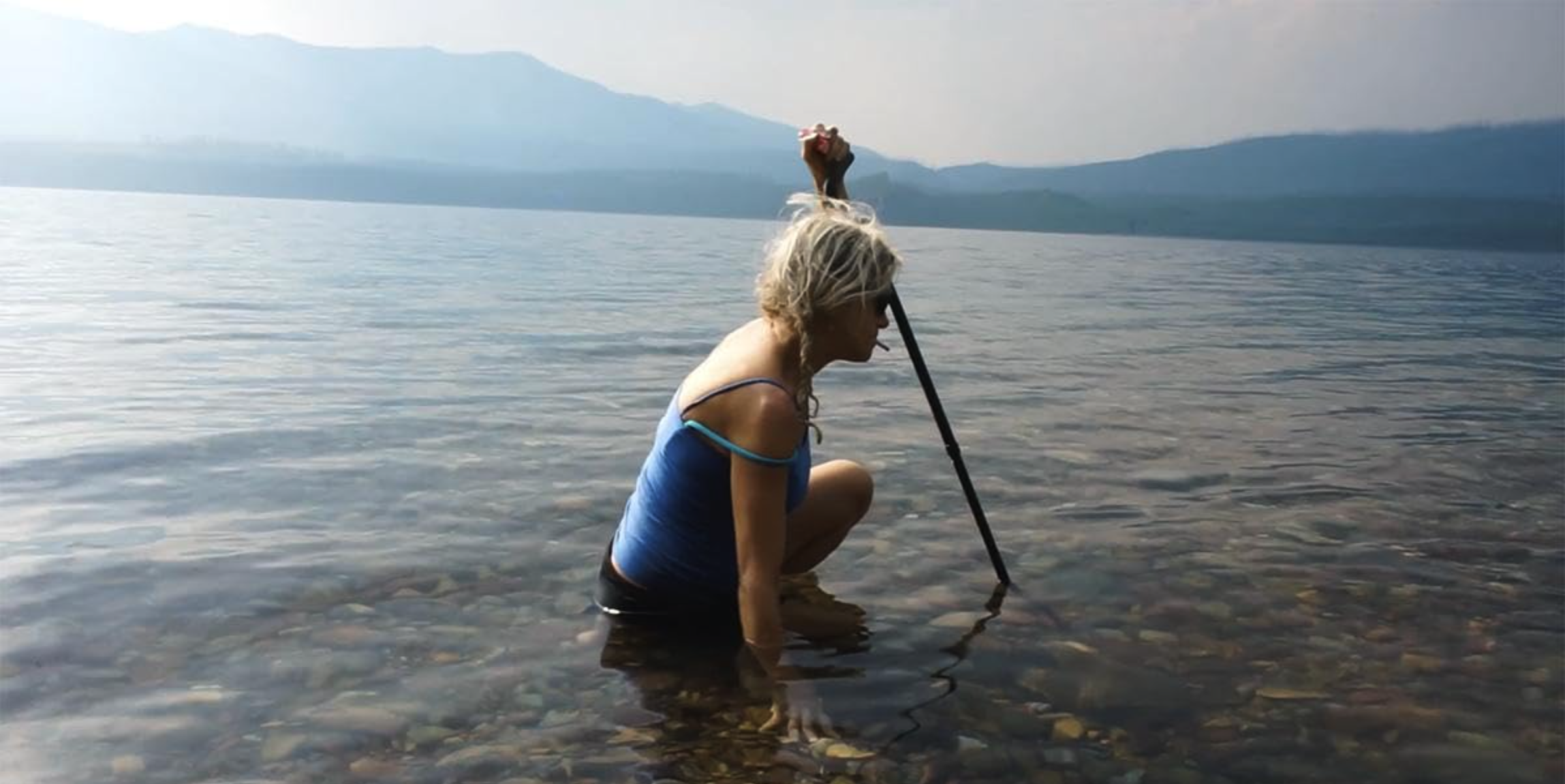
Senior Agrella receives prestigious Centennial Achievement Award
By Michael Chesnick. December 7, 2023Senior Grayson Agrella, a triple major in Art History, Anthropology and French whose research interests center around the gender non-conforming community, has been named a Centennial Achievement Undergraduate Award recipient — one of the highest honors a student can achieve at the University of Arizona.
Agrella, who will graduate summa cum laude with honors in spring 2024, is being recognized by the Dean of Students Office at a luncheon at Old Main on Dec. 5. He’s only one of two undergraduates to receive the award, given annually to students who have demonstrated significant contribution, accomplishment, moral character and integrity among the community.
“Grayson is one of those rare intellects … who has impressed the Art History faculty with the depth of his passion for the arts and his achievement in every class,” wrote School of Art History Professors Irene Bald Romano and Paul Ivey, who nominated Agrella for the award. “He has made a strong commitment to LGBTQ+ rights and issues — profoundly expressed in his research.”
In Romano’s “Topics in Museum Studies” class, for example, Agrella wrote about how museums have historically interpreted and displayed works by queer artists or LGBTQ+ topics, and how innovative exhibitions could change the cultural dynamic. And in Romano’s “Art as Plunder” class, Agrella explored how art dealing with homosexuality or the AIDS/HIV crisis was unfairly targeted in the 1980s while the LGBTQ+ community suffered unparalleled losses.
Agrella is committed to helping trans youths and has volunteered at camps for transgender children and their families. His Honors College thesis focuses on the types of activist engagement of trans youths — and how that impacts their perceived well-being and feelings of belonging in their communities, internalized negativity and negative health outcomes.

“I plan on going to graduate school after some work experience, and plan on pursuing something akin to queer anthropology,” Agrella said. “Lately I’ve been investigating visual anthropology programs, as they require a lot of skills such as visual analysis that I’ve learned as an Art History major.”
For the last two years, Agrella has worked at the Center for Creative Photography as an archival assistant, handling and rehousing archival materials, supervising researchers, and assisting with the digital archiving of images. In 2021, he worked for the U.S. Department of State as an agent in the Passports Division, which demanded “deep sensitivity to individual claims and individuals under stressful circumstances,” Romano and Ivey wrote in their nominating letter.
Agrella “regularly engages with mutual aid efforts, including those benefitting the unhoused community and other social justice causes in which he believes, the Dean of Students Office said.
“Grayson is the embodiment of the values associated with the Centennial Achievement Award,” Romano and Ivey wrote. “He has demonstrated outstanding persistence and integrity in his unwavering pursuit of excellence in his academic work. He has contributed significantly to the well-being of the community, especially trans youth, and he embodies the University’s strategic goal of valuing and supporting the diverse experiences of our students.”
Agrella, who carries a 3.971 GPA, was a National Merit Finalist and National AP Scholar at Tucson’s University High School, where he honed his literary gifts and became the Poetry and Prose editor for the Carnegiea Literary Magazine for the youth of Southern Arizona.
He talked more about his college experience in an interview with the School of Art:
Q. How rewarding, or challenging, has it been to juggle three majors?
A. I’ve found my experiences in all my majors to be eye-opening in different ways; I love studying art as a universal human experience, as well as how it becomes part of larger machinations, and anthropology has given me a more expansive understanding of many of those processes. Through the French program, I’ve been exposed to different cultures which has likewise made me analyze parts of my own culture that I took as givens — I love escaping the America bubble.
Q. How did you get interested in Art History, and what makes it special to you?
A. I initially chose Art History as a major after taking the AP in high school, and because I come from a family of artists but can’t see myself having a professional practice. Everyone has their own relationship to art — however high- or low-brow it may be — and I’m fascinated by how those relationships are influenced by a cacophony of outside factors. Art History, for me, is a material way of understanding snapshots of the human experience. The material focus still necessitates addressing abstract concepts at play, even if they involve global power dynamics or political motivations.
Q. What advice would you have for first-time undergraduate students at the university?
A. I would say branch out. Explore. I’ve found the School of Art to be what you make of it; there are so many ways to get involved — academically or otherwise — with whatever you’re passionate about, and if you feel something is missing you can make it happen yourself. And, you know, the usual things: Make connections with professors, figure out how to feed yourself, show up to class. And lean into whatever makes you a little funky and fun.







